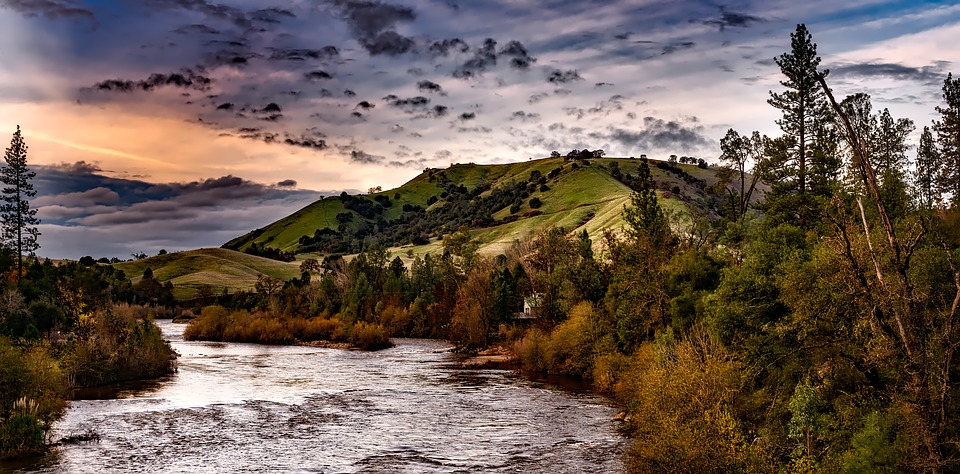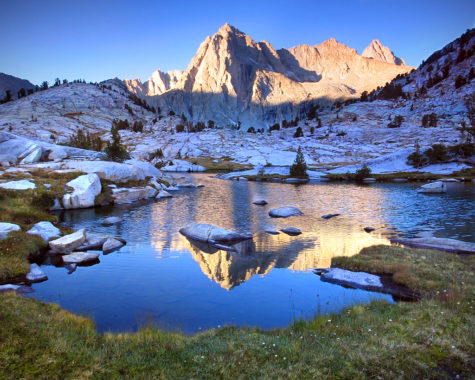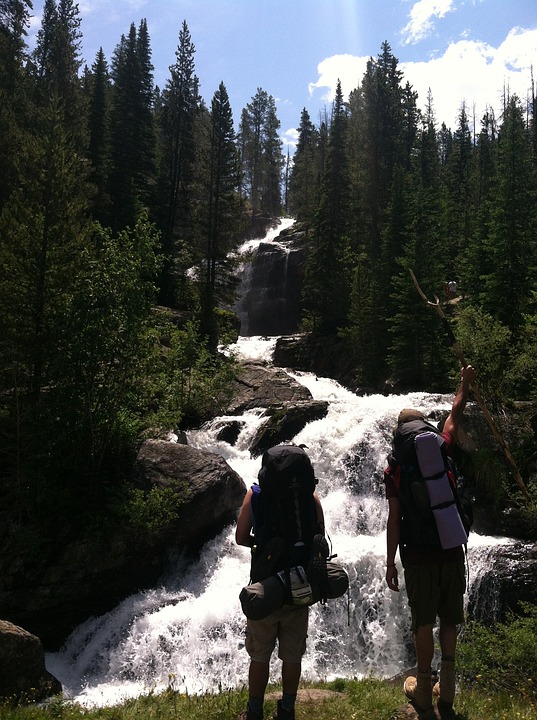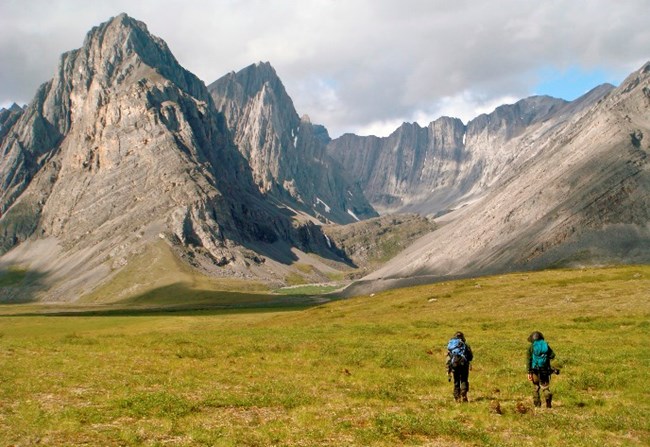 This week, a headline literally* gave me whiplash. The loss of 1,600 points on the Dow? No, don’t be silly. Another government shutdown? No, not that one either. I mean the big news. Backpackers no longer have to filter their water. Because there’s nothing in the water that can hurt them!
This week, a headline literally* gave me whiplash. The loss of 1,600 points on the Dow? No, don’t be silly. Another government shutdown? No, not that one either. I mean the big news. Backpackers no longer have to filter their water. Because there’s nothing in the water that can hurt them!
Wow, right? Like many outdoor enthusiasts, I’ve always seen a water filter as a crucial part of my of my packing regimen. I’ve used ceramic filters, paper filters, those odd filters attached to the bottles, tablets, drops, UV light, and good old fashioned boiling.
I’ll never forget the feeling of staring at a snowmelt stream while coming off Clyde Minaret in the Sierras, long after dark, totally lost and dry as desert salt. I just sat there, staring, holding my broken Steripen and wondering if it was worth the risk.
In fact, if I had to decide between a filter and sleeping pad, I’m pretty sure I’d be waking up with a sore back in the morning.
But all of that was unnecessary. It turns out that the giardia, fecal coliform, cryptosporidium and other scary bugs that I’ve been filtering out just don’t occur much in the backcountry. It’s all a conspiracy by the companies making water filters. And by campers who don’t wipe properly.
I’ll be honest, I was excited when I read the title. The idea of not sitting for hours pumping water by my campsite is amazing. Clean tasting, sweat-free water. But as I read the piece more carefully, it crumbled apart like iodine pills a decade past their expiration.
First, there’s not much in it. The author cites a few obscure studies from the 1990s, one from Backpacker magazine and then basically declares the nation’s water safe to drink.
But wait, maybe it’s just that nothing has changed in the last 15 years. That could happen, right?
The latest study in the piece was 2004 and said there was a tiny risk for getting sick in the Sierras near where cattle live and very little higher up. Great, don’t hike near cattle. Except the team did a follow up paper in 2008 where all the numbers went way up.
They found that sites downhill from cattle always have coliform bacteria (a sort of shorthand for the presence of fecal contamination of one kind or another). Trails used by pack animals often do, sites used by backpackers rarely do and wild sites seemingly never do. But “rarely” still means you could get sick – it’s about half of the amount the EPA would need to flag it if it were near a city.
To say that mountain lakes are safe to drink just isn’t true. Unless you can avoid the rarelies.
Besides, you’d be surprised how many remote trails are actually downhill from livestock. Do you honestly keep track of all the grazing permits around your local National Forest? And so far I’ve only mentioned is the relatively high and pristine Sierras. In the Smokey Mountains, another study suggested you’d be nuts to drink the water without a filter. More importantly, it also suggested that the danger probably fluctuates during the year.
What struck me and others about the story was not that it was so wrong, just slipshod. Many of the contradicting stories came from the same journal as the one Slate used, Wilderness and Environmental Medicine. The article seems to rely on a single scientist – Thomas Welch – who has some interesting ideas but whom I would not take on a camping trip with my toddler.
 Which is not to say that the idea is completely nuts. Plenty of people don’t filter their water and never get sick. Other people go out once and get sick the first time. And any doctor or hiker worth her salt would have told me to drink the stupid water on Clyde Minaret. Really, dehydration was a much bigger concern at that moment. (I didn’t. But then my salt has never been worth much.)
Which is not to say that the idea is completely nuts. Plenty of people don’t filter their water and never get sick. Other people go out once and get sick the first time. And any doctor or hiker worth her salt would have told me to drink the stupid water on Clyde Minaret. Really, dehydration was a much bigger concern at that moment. (I didn’t. But then my salt has never been worth much.)
But there is no question that people do get sick in the backcountry and not just because they poop on their hands. A few of the sites even in the Sierras paper were way above the levels that I would drink (and above EPA levels as well). And looking at numbers in the Appalachians or the South gave me the willies. This is not just conspiracy cooked up by Big Filter, there is some dirty water in seemingly clean places.
The real lesson here is how few decent studies exist at all. In that 2008 follow-up study, the team collected about 364 samples in a couple dozen places over five years. I’m pretty sure Craig has sampled more than that just by being Craig. Don’t get me wrong, it’s a good start but that’s about it. But interestingly, the more they looked the more contamination they eventually found.
Which means that no one can really be sure yet how safe drinking stream water really is (though lake water may be safer than stream water). But suggesting that the people – especially the very old or young – shouldn’t treat their water is irresponsible.
But it’s not just drinking water. Several years ago, I profiled an expedition doctor (here and here) and was shocked to learn how much of my wilderness medicine training was based on hunches.
Should you suck the rattlesnake venom out of a wound? (Not a good idea, even with a kit.) Where is the best place to ride out a lightning storm? (Bottom of a steep mountain? Maybe?) And is it true that the only way to get a gila monster to let go is with boiling water? (As of a few years ago no one has ever tested this but one guy was working on it.)
Not surprisingly, lightning and mountain streams don’t get the journal ink that cancer and diabetes do. And this makes sense. Just like it makes sense to bring a filter into the woods. And if you don’t, that’s fine too. But if you get sick, don’t say you didn’t know.
Photo Credit: The National Park Service and Max Pixel
* And when I say literally, I mean literally — in a figurative way.


And it’s not like a Steripen or water filter weighs that much. A few extra ounces is certainly worth the weight if it keeps you on the trail instead of needing an emergency evac.
My father still uses an old First Need, which weighs just slightly less than a Buick. But yeah, the new filters are small and pretty cheap. I’ve been using this Sawyer filter lately and it’s been okay. https://www.outdoorgearlab.com/reviews/camping-and-hiking/backpacking-water-filter/sawyer-mini